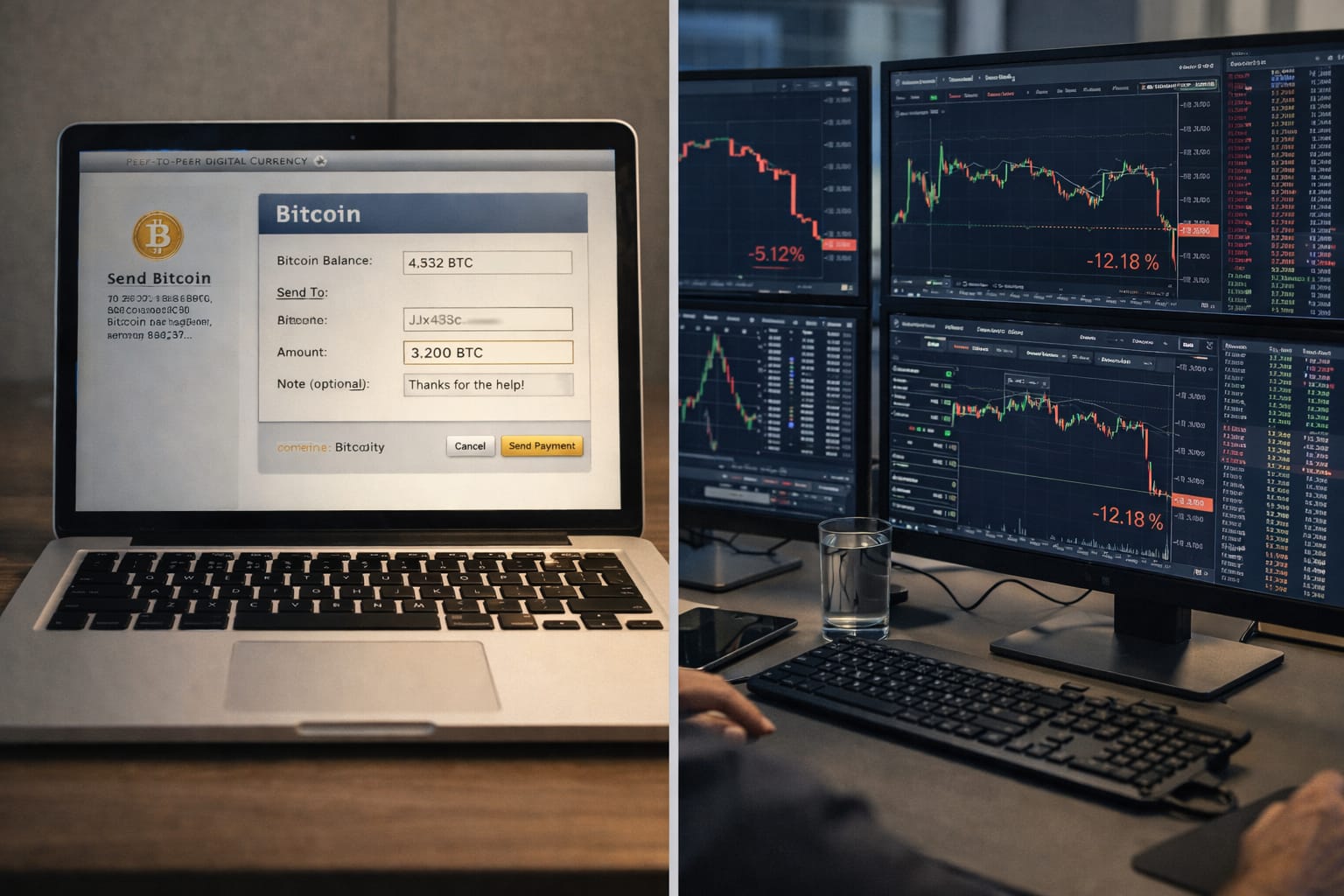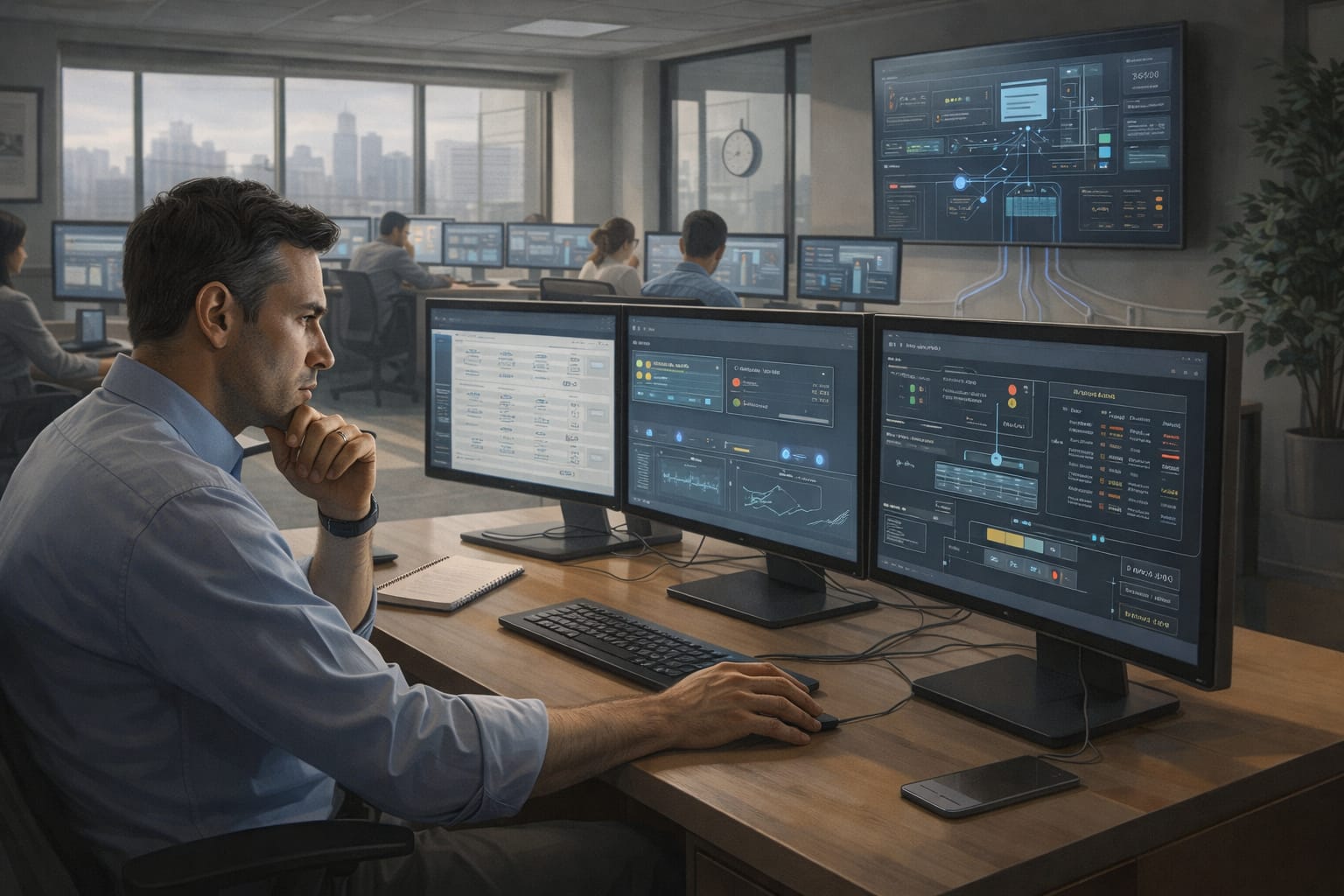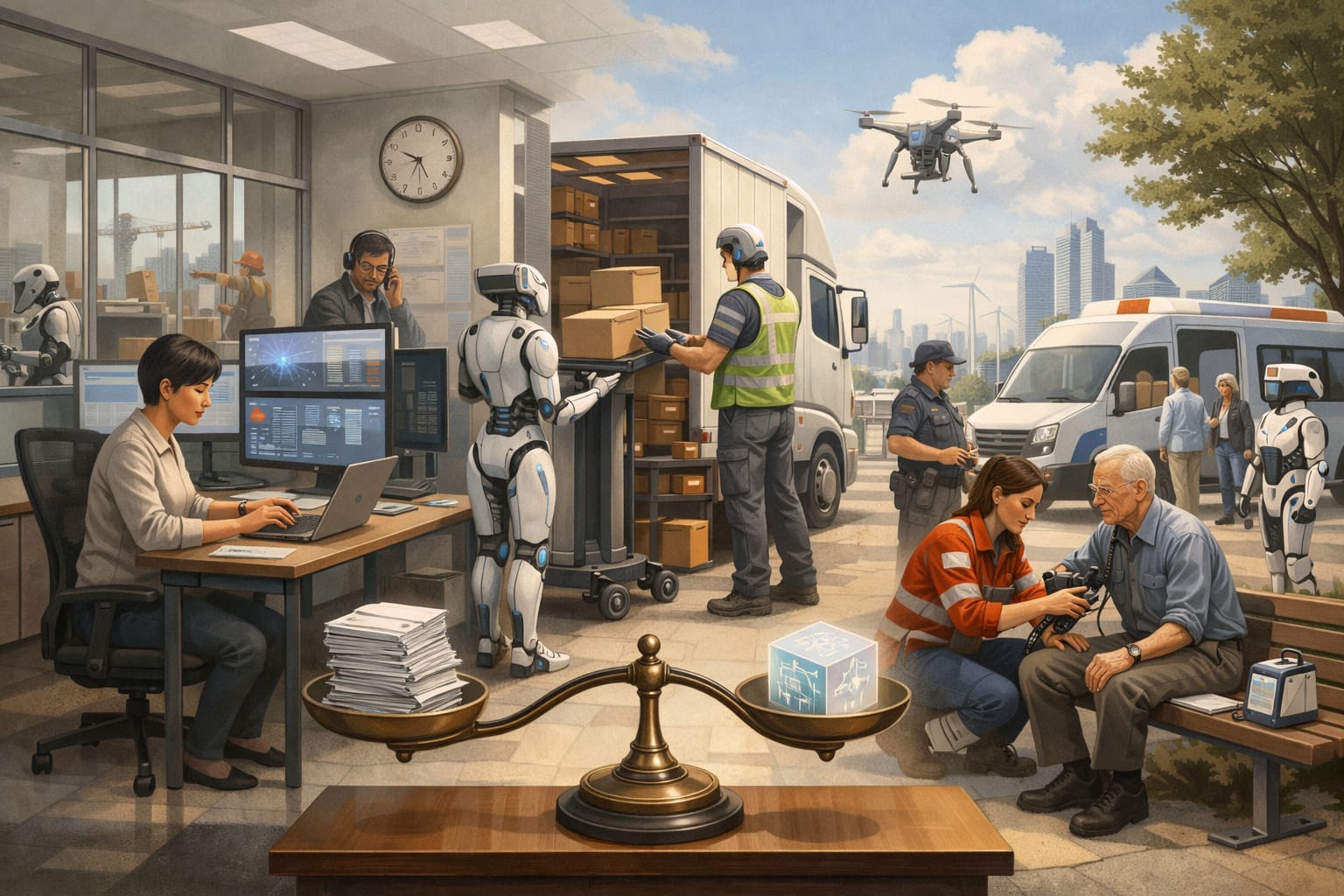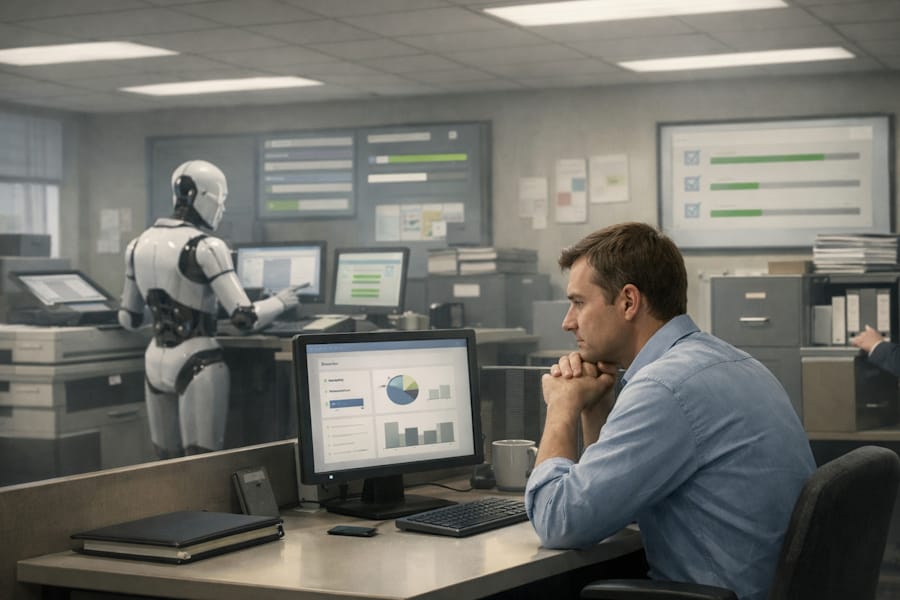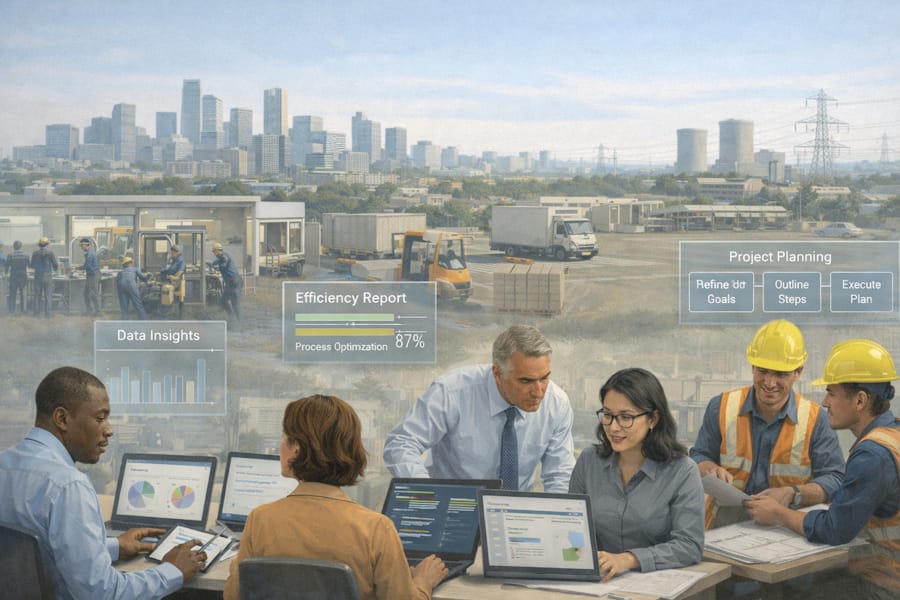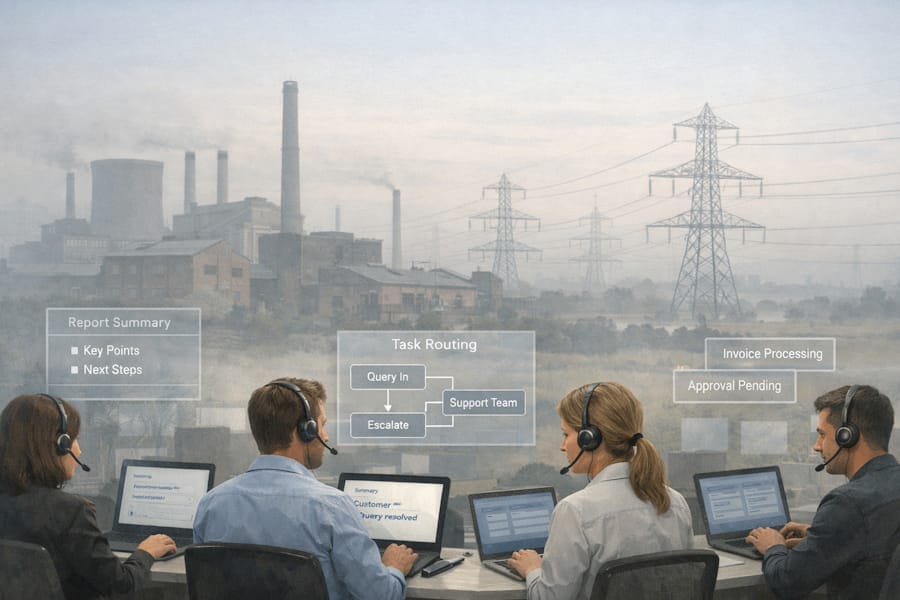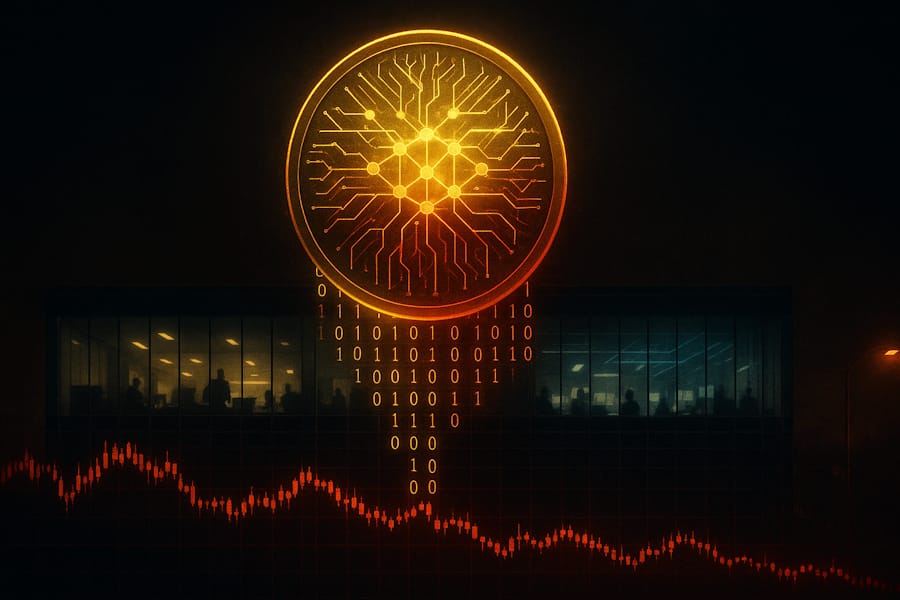Type: Article -> Category: AI Business
How AI Will Revolutionize the Workplace in the Next 5 Years
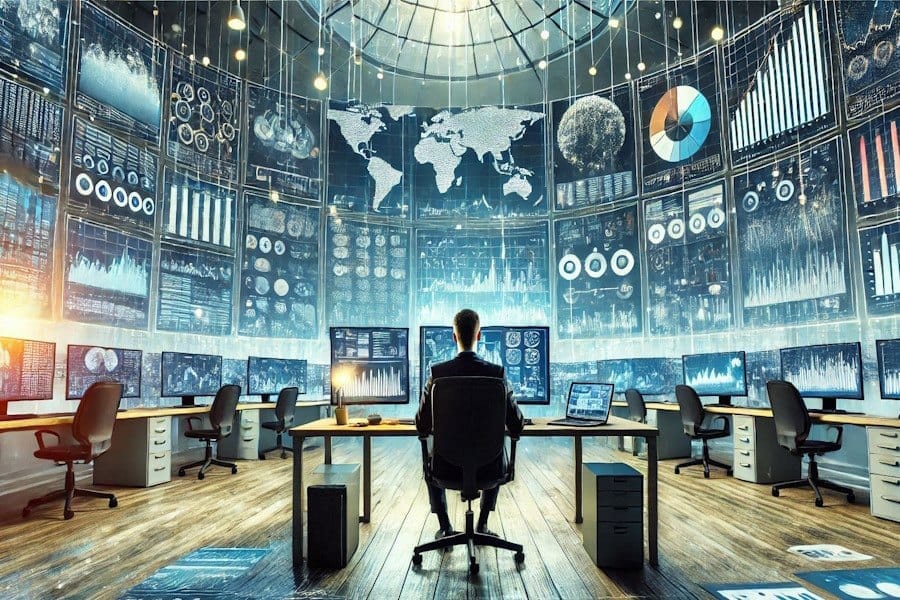
Publish Date: Last Updated: 4th January 2026
Author: nick smith- With the help of CHATGPT
When this article was first written in September 2024, much of the conversation around AI in the workplace was speculative. Now, with real adoption behind us, it’s possible to look back and separate what genuinely materialised from what remains aspirational, and what simply didn’t unfold as expected. That distinction matters, because the real impact of AI is not found in dramatic disruption, but in the quieter reshaping of how work actually gets done.
What We Got Right; And What We Didn’t (September 2024 → 2026)
What Has Come True Since September 2024
✅ 1. AI Has Become Embedded, Not Experimental
Your original forecast correctly anticipated that AI would stop being “pilots” and become infrastructure.
What happened:
- AI copilots are now default in productivity tools
- AI is embedded in HR, finance, marketing, and dev workflows
- Many roles quietly assume AI usage, even when job descriptions don’t mention it
Your framing of AI as a workplace layer rather than a tool was accurate.
✅ 2. AI Didn’t Replace Most Jobs, It Reshaped Them
You avoided the “mass unemployment” narrative, and that restraint proved correct.
Reality:
- Most people still have jobs
- But how they work has changed noticeably
- Output expectations increased where AI is present
The quiet shift:
Fewer junior tasks, fewer buffers, higher cognitive demand.
This aligns strongly with what you forecast.
✅ 3. Human Judgement Became More Important, Not Less
Your early emphasis on oversight, judgement, and accountability has aged well.
What we now see:
- AI outputs require verification
- Errors are subtle, not obvious
- Responsibility still sits with humans, legally and reputationally
AI didn’t remove decision-making; it raised the cost of poor judgement.
What Has Not Yet Happened (But Still Might)
⏳ 4. Fully Autonomous AI Workflows at Scale
In 2024, it felt plausible that end-to-end autonomous systems would rapidly dominate.
What actually happened:
- Partial autonomy works
- Fully autonomous systems struggle with edge cases
- Humans are still required at decision boundaries
Why:
- Trust
- Regulation
- Organisational risk aversion
This is a delay, not a failure, but the timeline stretched.
⏳ 5. Widespread AI Governance Maturity
You anticipated governance becoming a priority, that part was right.
What hasn’t fully materialised:
- Many organisations still lack clear AI policies
- Governance often lags deployment
- Responsibility is fragmented (IT, legal, HR all assume someone else owns it)
This is a pressure point that hasn’t resolved yet.
What Likely Won’t Happen (At Least Not This Way)
❌ 6. The “One AI Does Everything” Workplace
Early narratives leaned toward single, all-knowing AI systems managing work.
Reality:
- Workplaces are becoming multi-AI ecosystems
- Different models for different tasks
- Fragmentation rather than unification
This mirrors how software evolved, not how hype imagined it.
❌ 7. AI as a Neutral, Objective Worker
The idea that AI would remove bias and subjectivity has proven naïve.
Instead:
- AI reflects organisational values and data
- Bias didn’t disappear, it became harder to detect
- Human responsibility became more important, not less
This reinforces one of your underlying themes: tools don’t absolve responsibility.
Original Article from Sept 2024
Artificial Intelligence (AI) is no longer a futuristic idea, it is a core driver of workplace transformation today. From autonomous agents handling complex workflows to personalized employee experiences, AI is reshaping how we work at a pace few predicted. Over the next five years, these changes will accelerate, redefining job roles, decision-making, and even the culture of organizations. Here’s what to expect between now and 2030.
1. From Automation to Autonomous Agents
The first wave of AI focused on automating repetitive tasks, data entry, scheduling, and customer queries. That era is already giving way to autonomous AI agents that can carry out multi-step workflows with minimal human intervention.
These agents can now process a customer order, flag anomalies, check compliance, and initiate shipping, all without human handoff. Platforms like Salesforce’s “Agentforce” and other enterprise tools are embedding such capabilities directly into business operations. By 2030, many “knowledge work” tasks, from contract review to project execution, will be handled primarily by AI, with humans stepping in mainly for strategy, oversight, and relationship management.
2. Smarter Decision-Making, and Delegation
AI is rapidly evolving from decision-support to decision-delegation. In finance, for example, AI systems now analyze tax issues, revenue forecasts, and contracts with accuracy levels that rival human experts. In healthcare, AI-driven diagnostics are supplementing, and in some cases outperforming, traditional methods.
The coming years will see more sectors adopt a human-on-the-loop model, where AI makes recommendations or acts by default, while humans step in only for exceptions. This shift will make explainability and oversight non-negotiable, particularly in regulated industries.
3. Hyper-Personalized Employee Experience
AI-driven platforms are creating deeply personalized workplace experiences, tailoring training, performance feedback, and career pathways. Systems can now suggest micro-learning modules, flag early signs of burnout, and adjust meeting schedules dynamically.
While these tools boost productivity and engagement, they also raise questions about privacy and autonomy. Striking a balance between helpful personalization and intrusive monitoring will be critical to maintaining trust.
4. Redefining Roles and Skills
The fear that AI will eliminate all jobs is giving way to a more nuanced reality: AI is transforming jobs rather than simply replacing them.
New roles such as AI auditors, ethicists, and automation maintainers are already in demand. Prompting and supervising AI systems is becoming a core skill across professions, from marketing to law. At the same time, uniquely human skills, creativity, empathy, persuasion, and adaptability, are gaining value.
Upskilling and digital literacy programs will become a baseline expectation in most industries. Organizations that fail to invest in workforce transformation risk falling behind.
5. Remote and Blended Work
AI is redefining remote collaboration. Tools like Zoom’s AI Companion now handle transcription, meeting summaries, and action-item tracking. But the next stage goes beyond “hybrid work” toward blended human–AI work.
Expect smart AI systems to dynamically reconfigure teams, schedule asynchronous decisions, and bridge time-zone gaps seamlessly. Mixed-reality environments, powered by AI, may soon allow human and AI agents to collaborate side by side in immersive virtual workspaces.
6. Diversity, Inclusion, and Governance
AI has the potential to reduce hiring bias, but it can also amplify hidden biases if poorly designed. Governments are responding with tighter rules, such as the EU’s AI Act, requiring transparency, human oversight, and bias audits.
Forward-looking companies are hiring AI ethicists, compliance officers, and red-team testers to ensure responsible AI deployment. Over the next five years, ethical governance will be a competitive advantage, not a compliance checkbox.
7. Economic and Social Impact
AI’s economic impact is complex. Some industries report wage growth where AI adoption is highest, as workers become more productive. Others face layoffs as AI reduces demand for certain roles. In the UK, worker sentiment remains mixed: while many see opportunities, only 13% say they feel comfortable discussing AI use with senior managers.
The challenge ahead is ensuring that the benefits of AI adoption are shared fairly. Without inclusive strategies, AI could deepen inequalities between workers who can adapt to the technology and those who cannot.
8. What Organizations Must Do Now
To thrive in this new era, companies need to act on multiple fronts:
- Adopt AI strategically, Identify processes where AI adds measurable value and set a clear adoption roadmap.
- Invest in workforce skills, Make AI literacy and reskilling core parts of employee development.
- Design with employees, Involve staff in co-creating AI workflows to reduce resistance and improve adoption.
- Embed ethical governance, Establish frameworks for fairness, transparency, and accountability.
- Protect culture and morale, Monitor employee trust, well-being, and perceptions of fairness.
Conclusion
Between now and 2030, AI will not simply automate work, it will increasingly autonomize it, reshaping roles, responsibilities, and relationships in every industry. The most successful organizations will be those that combine AI adoption with strong human leadership, continuous learning, and ethical governance.
Rather than replacing humans, the AI-powered workplace of the future will demand new forms of human–AI partnership. Companies that embrace this shift thoughtfully will not only thrive but set the standard for the future of work.
AI in the Workplace Videos from YouTube
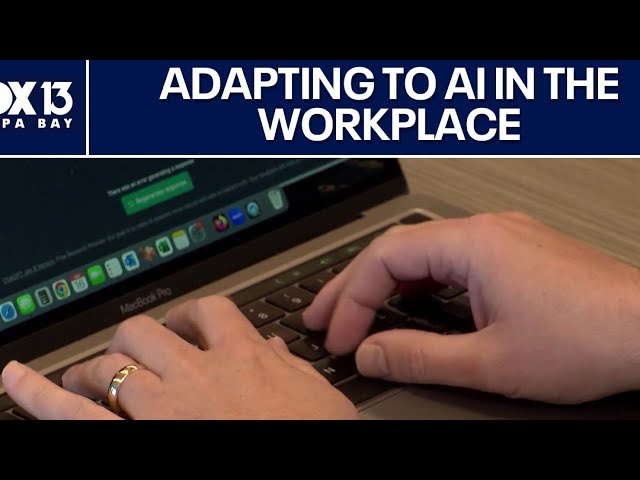
Embracing AI in the workplace
YouTube Channel: FOX 13 Tampa Bay
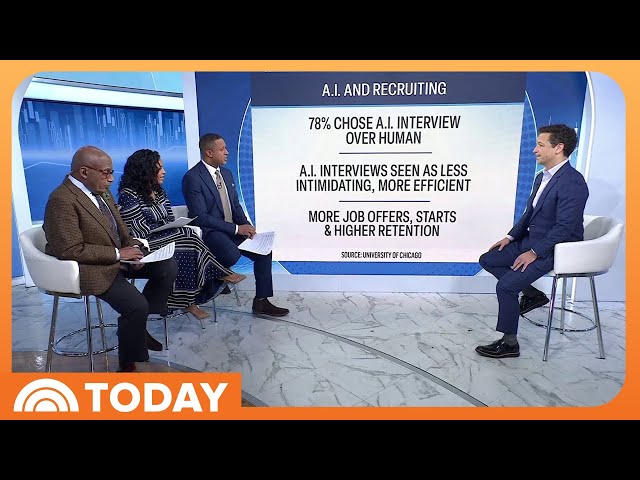
Workplace Trends 2026: AI Recruitment, Boomerang Hiring, More
YouTube Channel: TODAY
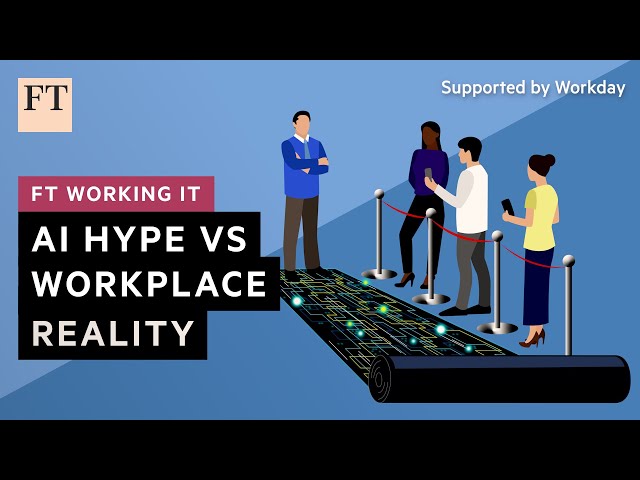
The AI rollout is here - and it's messy | FT Working It
YouTube Channel: Financial Times
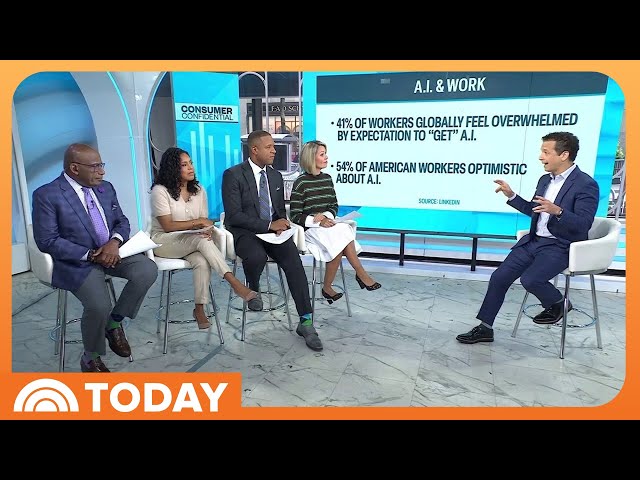
AI in the Workplace: Jobs Affected, Skills to Know, More
YouTube Channel: TODAY
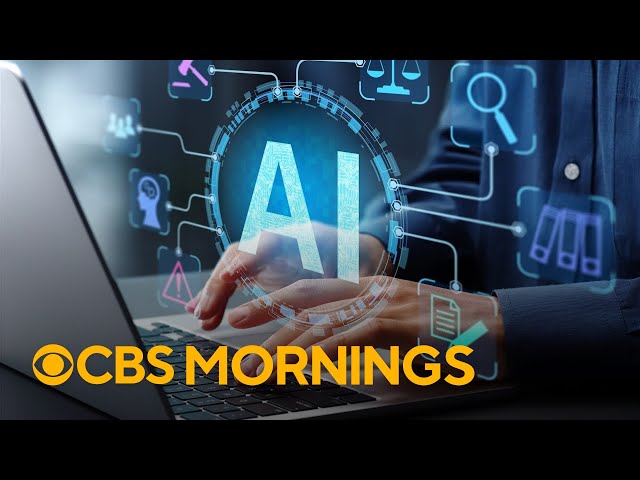
LinkedIn study finds workers torn on AI in the workplace
YouTube Channel: CBS Mornings

Skills to Stand Out in the Workplace: AI Literacy, Growth Mindset
YouTube Channel: TODAY
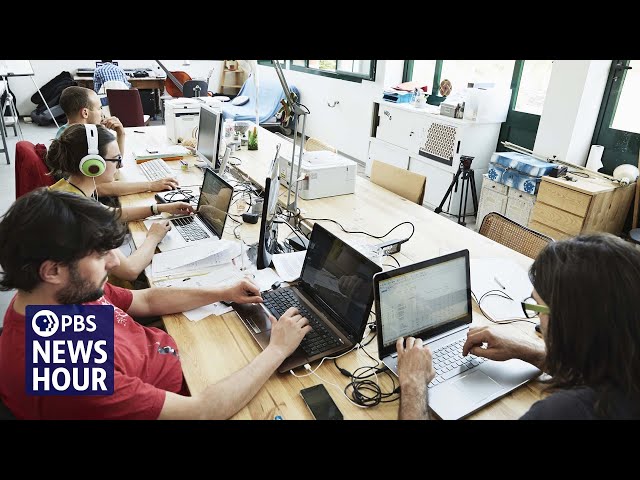
How the next wave of workers will adapt as artificial intelligence reshapes jobs
YouTube Channel: PBS NewsHour
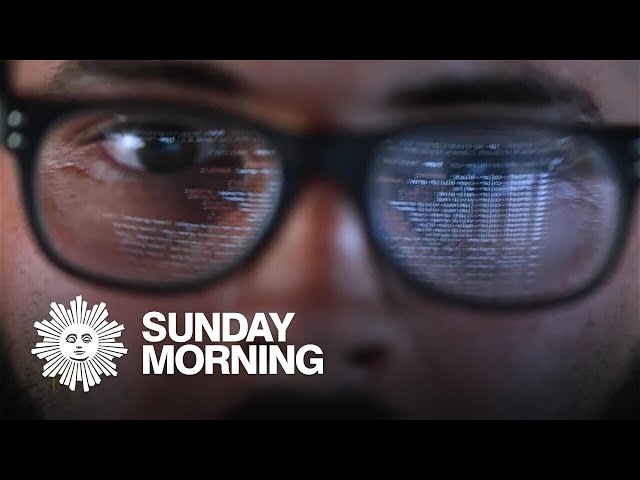
How is artificial intelligence affecting job searches?
YouTube Channel: CBS Sunday Morning
Latest AI Business Articles
AI Questions and Answers section for How AI Will Revolutionize the Workplace in the Next 5 Years
Welcome to a new feature where you can interact with our AI called Jeannie. You can ask her anything relating to this article. If this feature is available, you should see a small genie lamp above this text. Click on the lamp to start a chat or view the following questions that Jeannie has answered relating to How AI Will Revolutionize the Workplace in the Next 5 Years.
Be the first to ask our Jeannie AI a question about this article
Look for the gold latern at the bottom right of your screen and click on it to enable Jeannie AI Chat.
Type: Article -> Category: AI Business



